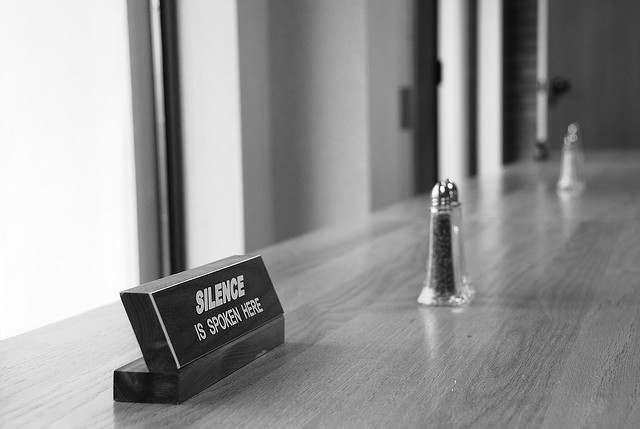One of the enduring myths about Social Media is that it is somehow about connecting friends, colleagues or contacts. The reason I call this mythological is not the fact that people can have 100s or 1000s of friends on Facebook – even if that is a bit weird (see Dunbar Number) – no my gripe is that friends, colleagues and even contacts have the right to make demands on you and even if they behave badly cannot simply be unfriended or unfollowed without social repercussions. Aside from that Social Media can naturally be used to support and strengthen friendships.
But if the crowds online are not my friends – what are they? Well, as Facebook would say, “its complicated”. But one aspect of our relation to them is that they are a perceived audience and we are constantly (well at least when we broadcast online) perform for them.
The Abnormality of Normality
The problem is that most of us are normal. It’s kind of a definition about who we are. Most people have to be normal – or else the concept of normality would not work. So aside from the miniscule number of abnormal or outstanding folks most people online are normal.
This normality raises a problem in the concept of performance lifestyles. How do we publicize our normality? Well, the answer is often that we don’t. Or rather, we do, but we cheat. The trick for many users is not to create a fictitious life (which nobody would believe) but to present our ordinary (normal, boring) lives in just a slightly odd way.
The simplest way of doing this is to enhance the ordinariness of the situation. So nobody watches a film or reads a book but we watch an excellent film, read an awesome book. Or a terrible book and a horrible film. This is because there is little or no value in publicizing the ordinariness of a situation – so it must be made extra ordinary in some way.
Another strategy is to constantly, almost manically, repeat the same activity. Several years ago I came across a blog that was only pictures of the persons toothbrush with toothpaste. Two pictures per day (morning and evening I guess). Now one image was boring enough but the sheer weight of all this toothpaste made the photoblog extraordinary and oddly fascinating.
The problem is that this takes an obsessive investment. It’s much easier to publish odd things that happen around us, things that stand out from our everyday experience. For the most part this is relatively harmless but in certain situations it isn’t. What is extraordinary in healthcare? Whatever it is, it violates patient privacy to put it on Facebook. Unfortunately this doesn’t always stop people from posting.
The Unhappiness of Others
Every now and then we can read reports that Facebook or Social Media is making people unhappy. For example The Anti Social Network or “They Are Happier and Having Better Lives than I Am”: The Impact of Using Facebook on Perceptions of Others’ Lives. This is an obvious effect of the performance lifestyle on others. Since nobody writes about the daily drudgery of normality it may seem to others that their own lives are boring in comparison.
This is why the absolute highpoints of performance lifestyles seem to be weddings and children. Both provide ample opportunities for photographs and other information spreading. They are both (relatively) extraordinary experiences while remaining in the realm of what is considered OK to boast about. Imagine if I was to boast about my new car in the same way as others boasted about their weddings? Information about the car would be considered bragging and people would ignore or unfriend me. Information about the wedding may still be seen as bragging but people will keep this to themselves and congratulate me.
Actually in one way this is one of the motivations for my own performance lifestyle project: My coffee sadism project
 Most mornings when I have time I enjoy coffee at my local cafe. Not a take away but actually sitting down a couple of minutes with a real newspaper, drinking real coffee out of a real cup. This is a perfect start to the day. It has an additional bonus. I take photo’s of my morning coffee and post them to Facebook. Some images I also post to my Flickr set where I maintain a collection.
Most mornings when I have time I enjoy coffee at my local cafe. Not a take away but actually sitting down a couple of minutes with a real newspaper, drinking real coffee out of a real cup. This is a perfect start to the day. It has an additional bonus. I take photo’s of my morning coffee and post them to Facebook. Some images I also post to my Flickr set where I maintain a collection.
When I am being nice I call this a photo project, when I am being researcher I call it an experiment in social media. But when I am honest I call it my sadism project… as it annoys the hell out of my co-workers and some of my friends. Performance lifestyle is the need to publicize elements of your life in order to enhance the quality of it. Naturally it does not have to be at others expense – but it often seems to be.




